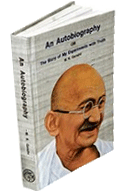The Mahatma Gandhi-led 'Salt Satyagraha’ during India's independence struggle was named among the ‘Top ten most influential protests’ in the world by Time magazine. This non-violent march had shaken the roots of the British Empire in India.
In March 1930, Gandhi embarked on a 24-day trek from Sabarmati Ashram near Ahmedabad to Dandi, a small seaside town, to produce salt and not pay tax on it, in protest against the British salt monopoly in colonial India.
On the eve of the Dandi march, Gandhi delivered a speech to around 10,000 people saying, "I shall confine myself to what you should do after my companions and I are arrested. The programme of the march to Jalalpur must be fulfilled as originally settled. The enlistment of the volunteers for this purpose should be confined to Gujarat only. From what I have been and heard during the last fortnight, I am inclined to believe that the stream of civil resistance will flow unbroken."
His words inspired the whole country as a wider Civil Disobedience Movement against British rule ensued soon after the march completed at Dandi’s sea shore. Known as the salt ‘Satyagraha’ - a Sanskrit term meaning truth-force - it carried the emotional and moral weight to break the British Empire, Time magazine said.
The magazine further said that Britain’s centuries-long rule over India was, in many ways, first and foremost a regime of monopolies over commodities like tea, textiles and even salt. Under colonial law, Indians were forbidden to extract and sell their own salt and were instead forced to pay the far costlier price of salt manufactured and imported from the UK.
To quote Time magazine, “that act for which more than 80,000 Indians would get arrested in the coming months sparked years of mass civil disobedience that came to define both Indian independence struggle as well as Gandhi himself.”
Talking about the Salt March, Amrut Modi, secretary of Sabarmati Ashram Preservation and Memorial Trust said, “The main idea of the march was to unite people for the freedom movement. The march was aimed at preparing a ground for the movement, which could lead to the freedom of the country.”
Gandhiji followed the path which was taken by various saints of the country as he decided to walk and meet people, talking to them, changing their heart for the freedom movement.
This march was converted into a nationwide public movement which influenced people, the political situation in the country and the British Empire as well.
Source: http://www.dnaindia.com/india/report_gandhijis-dandi-march-among-worlds-top-10-most-influential-protests_1560904-all





